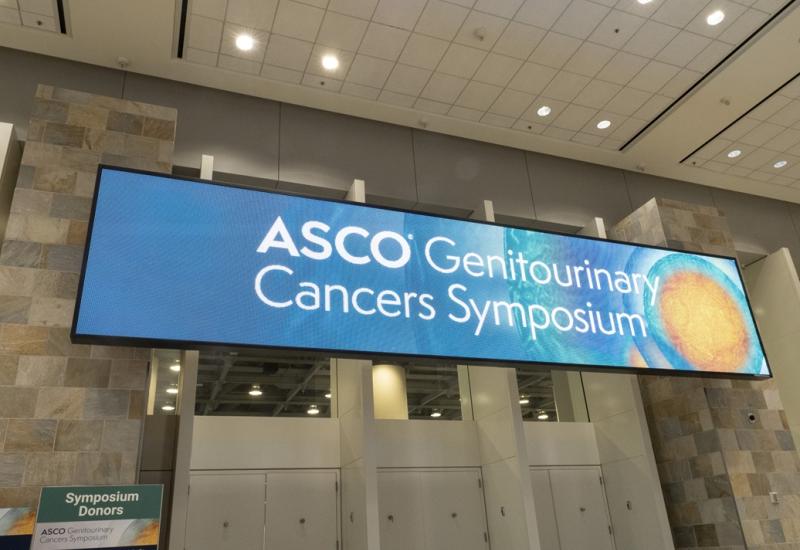
ESMO 2025 preview – IO Biotech's hollow victory
Keynote-D18 features among the ESMO late-breakers, but IO Biotech can't file.
Keynote-D18 features among the ESMO late-breakers, but IO Biotech can't file.

Revelation that the Keynote-D18 study of IO Biotech's Cylembio had scored a late-breaking presentation slot at ESMO might have raised hopes that this immunotherapy was approvable, but now the company has poured cold water on any enthusiasm.
The FDA has "advised" IO not to file based on Keynote-D18, IO revealed on Monday, after the first-line melanoma trial's narrow failure to hit its primary endpoint of progression-free survival. Instead, IO must design and run a fresh study, but quite how it can do this isn't clear given that its cash balance, $28m at the half year, will last only into the first quarter of 2026.
The threat of a cash crunch is now real, notwithstanding IO's decision to make 50% of its workforce redundant, also announced on Monday, or its drawdown of a €12.5m loan facility in July. Predictably the company's shares closed down 77%, a fact that makes the chances of raising any more money from investors even more remote.
Late-breakers
As it stands Keynote-D18 data will be presented at an ESMO oral session on 20 October. Most abstract titles have now been published by the conference organisers, but the actual abstract texts remain under wraps, and those relating to late-breakers won't be made public until the meeting itself.
Cylembio is an off-the-shelf project comprising the IDO and PD-L1 peptide antigens imsapepimut (IO102) and etimupepimut (IO103) respectively, seeking to activate T cells specific for those antigens. In Keynote-D18 it was combined with Keytruda, and yielded PFS curves that at first glance looked robust, and yielded a 23% reduction in risk of progression or death.
However, the resulting 0.056 p value failed to clear a 0.045 significance threshold. While the trial seemed underpowered, it was also notable for having enrolled just 17 US patients out of a total 407. It might be the latter point that's ended up troubling the FDA more than the former.
Selected ESMO late-breakers
| Study | Project | Company | Details | Note | Abstract |
|---|---|---|---|---|---|
| Viktoria-1 | Gedatolisib | Celcuity (ex Pfizer) | + Faslodex ± Ibrance, vs Faslodex in HR+/HER2-/PIK3CA WT breast cancer | Positive data, Jul 2025 | LBA17 |
| Stellar-303 | Zanzalintinib | Exelixis | + Tecentriq, vs Stivarga in 2L colorectal cancer | Toplined positive for OS, Jun 2025 | LBA30 |
| Defiance | Sirexatamab | Leap Therapeutics | + Avastin + chemo, vs Avastin + chemo in 2L MSS colorectal cancer | Failed, Jan 2025 | LBA34 |
| Keynote-D18 | Cylembio | IO Biotech | + Keytruda in 1L melanoma | Narrow miss on PFS, Aug 2025 | LBA53 |
| Alban | Tecentriq | Roche | + BCG, vs BCG in BCG-naïve high-risk NMIBC | No data | LBA107 |
| Potomac | Imfinzi | AstraZeneca | + BCG, vs BCG in BCG-naïve high-risk NMIBC | Toplined positive, May 2025; filed in EU | LBA108 |
Source: ESMO.
Keynote-D18 isn't the only failed study to have made the ESMO late-breakers. Another is the Defiance trial of Leap Therapeutics' anti-DKK1 MAb sirexatamab, which was toplined in January.
However, while Keynote-D18 looked like a technical failure the same couldn't be said for Defiance. Leap's second-line MSS colorectal cancer trial clearly missed its primary PFS endpoint, and the company shifted to highlighting post hoc subgroups where it claimed to have seen positive signals, and more worryingly moved straight into a phase 3 trial.
The data will no doubt be scrutinised in detail at ESMO, as will the full results of Celcuity's PI3K/mTOR inhibitor gedatolisib, which unexpectedly scored in its phase 3 Viktoria-1 breast cancer study – the result of an apparently smart decision to focus initially on PIK3CA-wild-type patients.
Other potentially registrational studies that have been toplined and are due to feature in ESMO late-breakers include Exelixis's Stellar-303 trial of zanzalintinib, and AstraZeneca's Potomac study of Imfinzi.
The latter concerns a BCG combo being pitted head to head against BCG in BCG-naive non-muscle invasive bladder cancer. This is the identical setting in which Roche tested Tecentriq in the Alban study, whose late-breaker features at the same ESMO session on 17 October. However, unlike AstraZeneca, Roche has said nothing about whether its trial succeeded.
ESMO will take place in Berlin on 17-21 October.
2684













